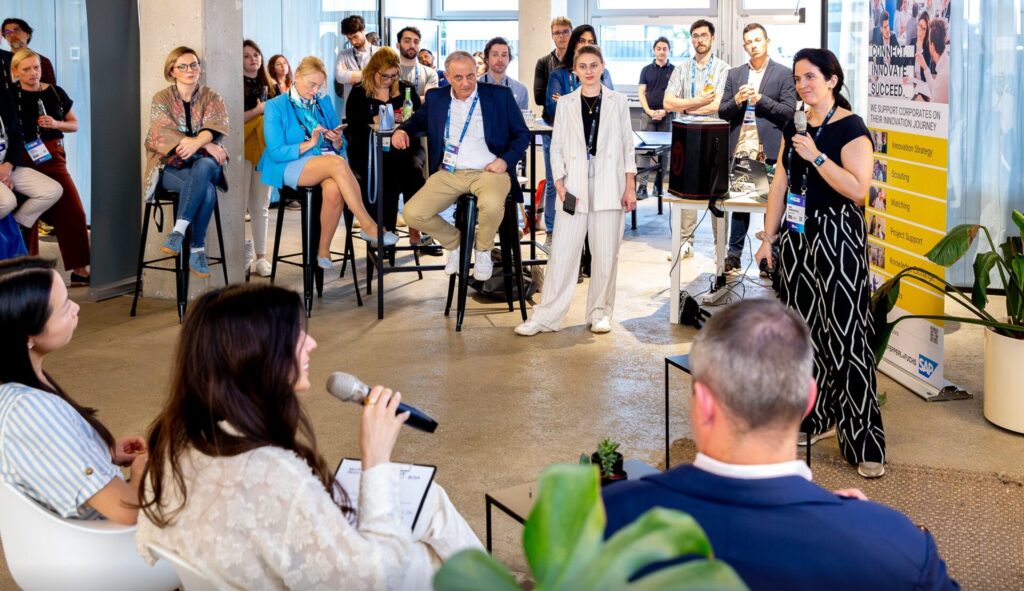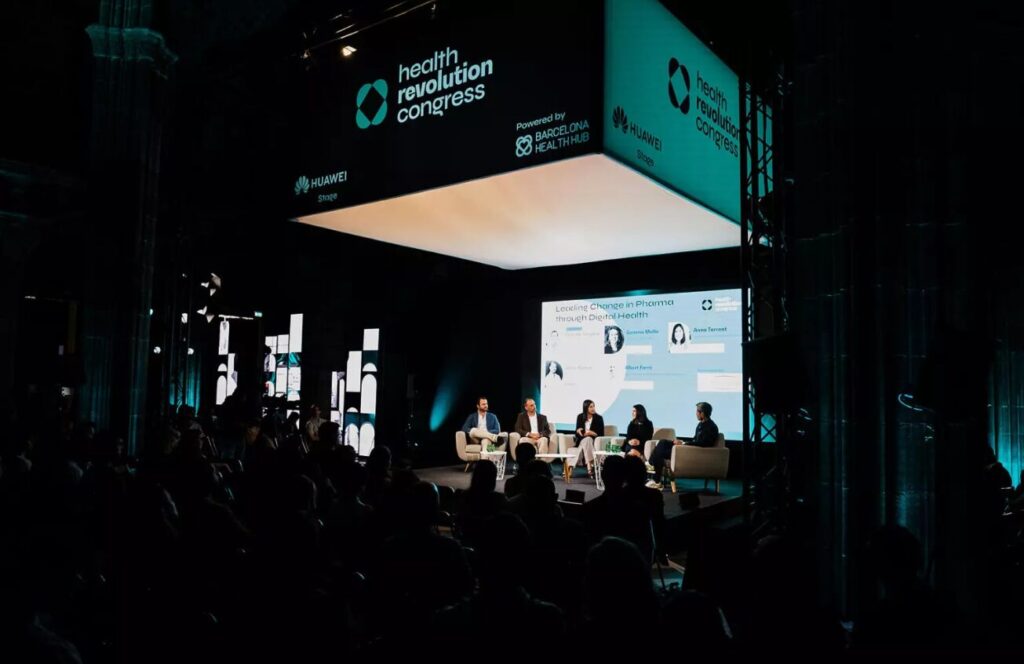
Michael Joe Cini
28th February 2023
Reproductive Health conference explores coherence between Medtech and fertility
Reproductive health is a major sector of the medical industry. Recently, as fertility reduces, more attention has been paid to this part of healthcare. Technologies helping fertility and management of infertility have continually been rolled into the market.
As this remains a global health concern, Med-Tech World takes an interest and finds it an important issue to dissect. In a panel session titled “Fertility To Newborn” and moderated by Diana van Stijn, Paediatric Resident & CMO at Lapsi Health, we were able to discuss the hurdles, current status, and impact of technology on fertility. Joined by experts in healthcare, Diana took us on a journey on reproductive health and the current concerns.
The panellists were Ana Garcia Poyo, Vice President of Operation and Chief Industrial Officer of Overture Life, Deborah Maufi, MBBS, MBA, Founder & Managing Director of DPM Healthcare Consultancy, and Mhairi Quinan, Sales & Marketing Director, Pera Labs.
Med-Tech World aims to bring together leading companies, startups, investors, healthcare technology professionals, and media under one roof. It seeks to empower networking, investment, and knowledge sharing.
Innovating reproductive health and patient care
What are the hurdles with a normal fertility trajectory and how can technology solve these issues?

Anna: Infertility is a world health issue. Globally, there are millions of people that are affected. It doesn’t only have a physiological effect, but also affects the psychology of the concerned individuals. Access is a major challenge when it comes to infertility and its management. It’s burdensome for a person who ordinarily only sees an Obs and Gyn Doctor once a year to repeatedly visit the hospital, alongside the pain of being unable to conceive. The tests. The investigations. The hopes. The letdowns. All result in a tired patient.
Another challenge is the cost. In developing countries, like Nigeria, the cost of In vitro fertilization (IVF) ranges between 1 million naira in government owned hospitals to about 6 million naira in private hospitals; the price also depends on the number of cycles. In countries like the US, the cost of IVF is about 40% of the disposable income of people. In Spain, about $6000 to $7000 per cycle, and about 3 to 4 cycles are needed.
The outcome of any form of intervention as regards infertility is almost never 100%. In fact, the success rate could be around 25% or lower in some instances, necessitating an individual to go through several cycles of the same procedure, with a similar little chance of success.
These challenges are not insurmountable. Improved application of technology in the management of fertility will go a long way to make the journey easier. With more patient-centric solutions and standardization of procedures in the clinics, the journey overall could be improved.
What are the tech implementation differences between Sub-saharan Africa and the US or Europe?
Deborah: Digital and health literacy among the population especially in Sub-saharan Africa isn’t as strong as it is in Europe or the US. There’s a big difference in how healthcare information is accessible in the western world compared to Sub-saharan Africa. The power of health information is mainly from the doctor. Bearing in mind that the doctor-patient ratio is low, the time the doctor spends on each patient is very low and not enough to provide them with enough information. Because there’s lacking knowledge of basic healthcare needs, there’s a barrier whenever a new technology is being introduced.
The lack of regulatory and policy systems also contributes to the huge difference in the use and implementation of technology in Sub-saharan Africa compared to the western world. About a couple of years ago, South Africa, one of the most advanced countries in Sub-saharan Africa, introduced a health technology policy, one of the earliest in the continent. The absence of this system becomes a significant barrier when a new technology is introduced.
How has technology been evolving in the male fertility sector?
Quinan: Although lately, more and more people are turning to IVF, the current technology we use has a failure rate of about 70%. Aside from the cost, the technologies are not keeping up with the influx of people who need the services.
Reproductive health is a conservative branch of medicine and research. People have fears regarding new technologies in this field. Although this is slowly changing with time, we still have a long way to go.
Why is reproductive health behind compared to other healthcare sectors?
Deborah: Systemic discrimination is a long-standing problem that has been existing for a while. For instance, the FDA only approved women taking part in clinical trials in 1993. For 16 years, women with child-bearing abilities were not allowed to take part in clinical trials. The earlier clinical trials worked with the assumption that male and female bodies are the same – that if a drug works in the male, it definitely will work the same way in the female. While this is a costly assumption, it left us with about 2 decades of missing data about the female gender.
This is hardly the case right now. A lot of advocacy and real steps are being taken towards female healthcare and many femtech phenomena are rising.
What would you love to see changed in the next 5 years?
Quinan: Without a doubt, there will be increased awareness about reproductive health in the younger generation. We currently aren’t where we started, and the trend will keep going as people take interest and become aware of reproductive health and the available provisions.
Catch Med-Tech World in Dubai
The Med-Tech World exhibition is set to take the stage at SiGMA Group’s Eurasia 2023 Summit in Dubai this March, bringing together the brightest minds and latest innovations in the field of medical technology. This event offers a unique opportunity for healthcare professionals, entrepreneurs, and investors to learn from experts, explore new trends and technologies, and forge new partnerships that can drive innovation and transform the industry.
Interested in joining the conversation and experiencing this exciting event first hand? Visit our website now for more info and register to our upcoming events. We look forward to seeing you in Dubai!






